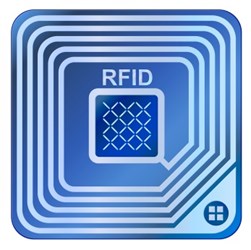Panelists Outline Benefits And Challenges To RFID Implementation For Retailers

By Christine Kern, contributing writer

Target, Lululemon, Athletica, and Levi Strauss all say RFID has boosted performance.
Panelists recently stated that implementing RFID in stores has led to boosted performance in inventory accuracy and fulfillment for Target, Lululemon Athletica and Levi Strauss, among others, according to the Journal of Retail Analytics from Northwestern University’s Retail Analytics Council. The conclusion of the panel was that while there are clear benefits to adopting RFID, a number of potential challenges to implementation still exist. However, the panelists assured, these obstacles are surmountable if retailers focus on the business goals they are aiming to achieve.
The panel included executives from Target and Levi, a former CIO of Lululemon and an executive from technology firm RFID Sherpas, and was moderated by Steven Keith Platt, director and research fellow at Platt Retail Institute and director of research at the Retail Analytics Council.
During the panel, Karl Bracken, senior vice president of supply chain transformation at Target, explained that the retailer’s initial interest in FRID was “in ensuring that we could have more accurate count integrity of our inventory throughout our network. You can imagine that in a big box retail store with 85,000- items in each store, count integrity can be quite challenging, particularly when you’re turning inventory quickly.” Bracken explained that the retailer has made progress and has been "pleasantly surprised by the benefits," but has also had to take baby steps. Target began implementing RFID price tags in 2015, as Retail IT Insights reported.
However, Bracken also admitted that the technology is not as widely distributed as Target initially envisioned. "We had originally planned on wanting to scale this more broadly across other categories throughout our store. That's still our goal — to extend it further — but one of the hurdles we've been working through is determining where it makes sense on a category-by-category basis to use RFID. Where do you run into physical limitations with the tags not working?"
In May, Tyco Retail Solutions recognized Lululemon for the “Best Retail RFID Implementation” in the 11th annual RFID Journal Awards 2017. The award recognized the best use of RFID technology to improve a store or supply chain operations, and Lululemon was acknowledged for the way they leverage RFID technology “to drive inventory accuracy and visibility to enhance their guest experience and create easy transactions for today’s omnichannel shoppers.”
For Lululemon, the goal was also to improve in-store efficiency through improved in-store operations. Allan Smith, former senior vice president and CIO of Lululemon Athletica, said RFID helped that retailer realize quick progress in inventory and fulfillment processes. "We were able to start to move on a strategy of driving ship- from-store and pick up-in-store, and really get to a position where we had systemic visibility across all our stores and ecommerce to know exactly what was in-store and online," Smith said. "To achieve the omnichannel fulfillment rates we were looking for, and to drive a best in class customer experience, very high inventory accuracy was required across all our stores and e-commerce."
For Lululemon, one stumbling block to broad implementation of RFID can come from failing to achieve buy-in from the functional groups throughout a retail organization and supply chain. Smith explained, “it’s critical to have the business functional leaders with IT as strong enablers to push through technical roadblocks or other types of solutions that you need to maintain.”
